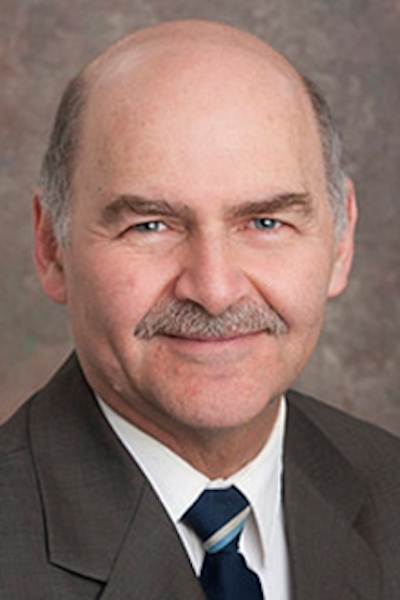Faculty Profile
Abraham M. Lenhoff
Allan P. Colburn Professor of Chemical Engineering
Education
- Doctorate – 1984 University of Wisconsin-Madison
- Masters – 1979 University of Wisconsin-Madison
- Bachelors – 1976 University of Cape Town, South Africa
About NAME (h3)
Intro paragraph to match content from the major finder. Intro paragraph to match content from the major finder. Intro paragraph to match content from the major finder. Intro paragraph to match content from the major finder. Intro paragraph to match content from the major finder. Intro paragraph to match content from the major finder. Intro paragraph to match content from the major finder. Intro paragraph to match content from the major finder. Intro paragraph to match content from the major finder. Intro paragraph to match content from the major finder. Intro paragraph to match content from the major finder. Intro paragraph to match content from the major finder.
Select Publications
For a complete listing of publications, please view the Full CV.
- Lewus, R. A., P. A. Darcy, A. M. Lenhoff and S. I. Sandler, “Interactions and Phase Behavior of a Monoclonal Antibody”, Biotech. Prog. (2010)
- Dumetz, A. C., A. M. Chockla, E. W. Kaler and A. M. Lenhoff, “Comparative Effects of Salt, Organic and Polymer Precipitants on Protein Phase Behavior and Implications for Vapor Diffusion”, Cryst. Growth Des. 9, 682, (2009)
- Xu, X., and A. M. Lenhoff, “Binary Adsorption of Globular Proteins on Ion-Exchange Media”, J. Chrom. A 1216, 3177, (2009)
- Trilisky, E. I., H. Koku, K. J. Czymmek and A. M. Lenhoff, “Relation of Structure to Performance Characteristics of Monolithic and Perfusive Stationary Phases”, J. Chrom. A 1216, 6365, (2009)
- Espitalier, F., Y.-C. Cheng and A. M. Lenhoff, “Mechanism of Formation of Lysozyme Crystals in Concentrated Ammonium Sulfate Solution from Concentration Profiles and Equilibria: Influence of the Second Osmotic Viral Coefficient”, Powder Technol. 190, 112, (2009)
- Trilisky, E. I., and A. M. Lenhoff, “Flow-Dependent Entrapment of Large Bioparticles in Porous Process Media”, Biotech. Bioeng. 104, 127, (2009)
- Bowes, B. D., H. Koku, K. J. Czymmek and A. M. Lenhoff, “Protein Adsorption and Transport in Dextran-Modified Ion-Exchange Media. I. Adsorption”, J. Chrom. A 1216, 7774, (2009)
- Tessier, P. M., J. Jinkoji, Y. C. Cheng, J. L. Prentice and A. M. Lenhoff, “Self-Interaction Nanoparticle Spectroscopy: A Nanoparticle-Based Protein Interaction Assay”, J. Am. Chem. Soc. 130, 3106, (2008)
- Lenhoff, A. M., “Multiscale Modeling of Protein Uptake Patterns in Chromatographic Particles”, Langmuir 24, 5991, (2008)
- Xu, X., and A. M. Lenhoff, “A Predictive Approach to Correlating Protein Adsorption Isotherms on Ion-Exchange Media”, J. Phys. Chem. B 112, 1028, (2008)
Patents (h3)
Lorem ipsum dolor sit amet, consectetur adipiscing elit. Sed vel nisi tristique enim dictum feugiat rhoncus et nisl. Sed pharetra.
Awards
For a complete listing of awards, please view the Full CV.
- Francis Alison Faculty Award (University of Delaware: 2014)
- Marvin J. Johnson Award of ACS BIOT Division: 2011
- Alan S. Michaels Award for the Recovery of Biological Products: 2009
- College of Engineering Excellence in Teaching Award (University of Delaware: 2009)
- American Chemical Society Award in Separations Science and Technology: 2009
- Fellow (American Institute for Medical and Biological Engineering: 2003)
- Fellow (American Association for the Advancement of Science: 2003)
- Gore Professorship in Chemical Engineering: 2002
- Weissberger-Williams Lecturer, Eastman Kodak Co.: 2000
- College of Engineering Special Faculty Award: 1991
Research Areas
The main goal of our research is to analyze, control and exploit molecular interactions involving proteins and colloidal particles. The motivation is initially to obtain improved quantitative insights into existing processes, leading to more effective methods for designing and using them, but an auxiliary objective is to develop new products and operations. These themes bring together a diverse collection of research activities, discussed below, involving theoretical and experimental work dealing with both the fundamentals — transport, kinetic and thermodynamic phenomena — and their interaction in the process environment. The path from molecular structure through continuum properties to process design represents the central paradigm in modern chemical engineering, but it has been applied much less extensively to species such as proteins than to small molecules; such processes as protein separations still depend very heavily on empirical methods for design and optimization.

Office: 229 CLB
Phone: 302-831-8989
lenhoff@udel.edu
